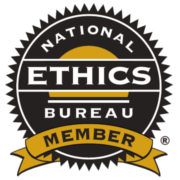Estate Planning
Let’s face it: No one wants to think about death, terminal illness, or sustaining a debilitating injury, but it is important to take the necessary steps to protect your loved ones and develop a successful wealth transfer strategy for the future. Proper estate planning not only allows you to stay in charge of your finances, but it is important to spare your loved ones with large expenses, unnecessary delays, and the frustrations associated with managing your finances after your death or disability.
There are many components to proper estate planning, but the most common parts to a well rounded estate plan typically include the following:
Will
A will is one of the oldest legal documents in existence. It is a designed to state how you would like your assets (estate) distributed upon death. However, wills only control probateable assets and those that can be transferred via probate court. Not all assets are probateable and controlled by the will, and they are able to transfer outside probate court. These commonly include:
- Life insurance proceeds
- Accounts with beneficiary designations
- Jointly owned assets that transfer to the surviving owner
- Real property held in a living trust
Dying without a will can be disastrous to your family. It leaves your estate intestate, and rather than distributing the assets in accordance to your wishes, it leaves the probate court to divide the assets up equally to your heirs using legal defaults. In addition to the legal consequences, it can impose a heavy tax burden on the beneficiaries, and sometimes even cause friction and fighting between family members. When these consequences are made aware, more often than not people would prefer to state how they would like their assets distributed, rather than being subjected to mandated division by a court.
Durable Power of Attorney for Finances
A financial power of attorney allows you to authorize someone to manage your financial affairs if you become incapacitated. Typically a relative or close friend, this person is known as the agent or attorney-in-fact, and is commonly able to execute the following on your behalf:
- pay day to day expenses
- operate a business
- make transactions at banks or financial institutions
- manage retirement accounts
- buy, sell, or maintain property
- file and pay your taxes
A durable power of attorney automatically ceases upon your death, and the other coordinating documents in your estate plan will take over to determine the next course of action.
Durable Power of Attorney for Health Care
Also known as an Advanced Directive, this document allows you to authorize someone to express medical care preferences or instructions if you become incapacitated or unable to communicate those instructions. Common occurrences include:
- traumatic brain injuries
- comas
- strokes
- or other situations that could affect your mind or ability to speak for yourself
With a medical directive established, you can direct which care you want to receive and which you do not. Your loved ones will be able to avoid any unwanted life prolonging treatments like resuscitation, and have a clear understanding regarding quality of life and end of life treatments.
Living Trust
Although the last item to be discussed, the beginning of any well rounded estate plan truly includes a revocable living trust. A revocable living trust is a contract entered by you to establish a separate entity, the living trust, which will own your assets. The term revocable allows you to retain control of those assets and maintain the right to change it, amend it, or revoke it at any time. Similar to a will, it contains instructions for how you would like your assets distributed upon death. But, unlike a will, a living trust avoids probate at death and prevents the court from controlling your assets if you become incapacitated.
While the aforementioned tools are commonly utilized in many estate plans, they may not be necessary in your individual situation. There is no perfect strategy to transfer an estate and its assets, thus a proper estate plan should outline and address your financial objectives and personal values. What works for one family, may not be the most appropriate plan for you.
We Represent You
At Nevada Senior Advisors we are dedicated to navigating you through the various choices to find a plan that best suits your individual needs.

